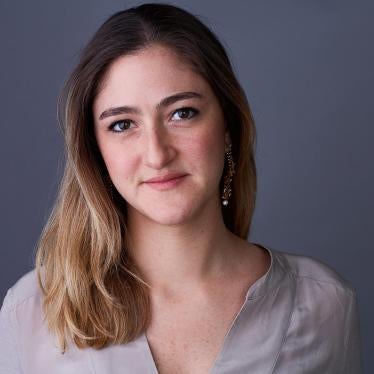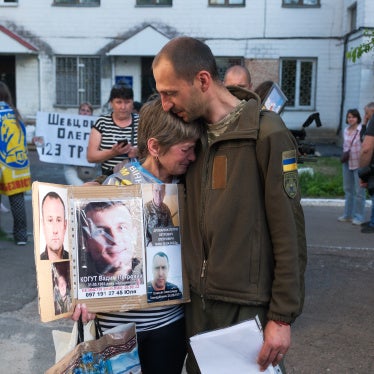In June I went to Doha, Qatar to speak with Palestinian patients and their family members who had been evacuated from Gaza. The medical professionals treating them told me that these were the most complex trauma cases they had ever seen. There is a humanitarian imperative for other countries, with robust, sophisticated healthcare systems and available beds like France to take in Palestinians from Gaza who cannot receive the care they need in Gaza or in Egypt.
During the more than 10 months of Israel’s ongoing military campaign in Gaza since October 7, over 40,000 Palestinians have been killed and over 93,000 injured, according to Gaza’s Health Ministry. Gaza’s healthcare system has nearly collapsed, only 16 out of 36 hospitals still partially functioning with severe deficit of medicines and fuel, and 500 health workers killed. Despite the Israeli military’s allegations that Hamas bases itself in hospitals, no evidence put forward would justify depriving hospitals and ambulances of their protected status under international humanitarian law.
In Doha, I met Malak Shahin, who told me about the explosion that hit the building next to the one she and her family were sheltering in on October 11. It took rescue workers 40 minutes to find her 17-year-old daughter Shahad, only to find her unresponsive. Malak’s son, a doctor, gave her CPR “for at least 10 minutes, but it didn’t help,” Malak said.
“Ambulance workers wrapped the body to prepare it for burial, and we took her to be buried. I opened the wrapping to see her one last time but saw her eyes open and heard her make a noise.” She was revived and was evacuated to Qatar, where she is being treated for severe memory loss and significant brain damage.
Shahad is one of over 470 of medical patients from Gaza in Doha who need specialized care of the highest level. I also met Jehad Arafat, a 29-year-old artist, who was sheltering in a school near Nasser Hospital in February, when he went out to get water and a sniper shot him from above. “I suddenly realized that my right leg was over my left shoulder.” He said the gunman kept targeting people as they tried to rescue him. Eventually a friend threw a rope to him, and dragged him to safety, then carried him to Nasser hospital.
He had surgery three times, but on February 15 a munition punched through the roof of the hospital, further injuring both legs and blasting off two of his fingers. He was evacuated to Doha on March 22, and has undergone multiple surgeries on his leg.
Since October, Israeli authorities have granted permission to only a small fraction of those who required medical treatment outside of Gaza. As of late July, less than 5,000 had been evacuated to Egypt, including very few men under 60. Israeli forces closed the Rafah Crossing on May 7, blocking almost all other Palestinians needing lifesaving care from leaving Gaza.
Even with the influx halted, however, Egypt’s healthcare system is straining under the caseload. We visited hospitals in northern Sinai in April and saw that thousands of patients from Gaza were unable to get the care they needed in Egypt.
While some governments have tried to bolster medical assistance inside Gaza, only a handful including Qatar, the United Arab Emirates, Spain, Turkey, Jordan, Italy, Belgium, and Norway are taking in some patients from Gaza.
The European Union’s health commissioner and crisis management commissioner have called on EU member countries to evacuate more people from Gaza in need of treatment. In contrast, by January 2024, over 3,000 Ukrainian patients had been transferred to European hospitals.
The evacuations address the effects of ongoing hostilities. To address the causes, governments need to pressure the Israeli government to halt all unlawful attacks against civilians and health structures, and to stop deliberately blocking aid delivery. They should also encourage Israel to evacuate Palestinians from Gaza who can’t get the care they need in Egypt, and later ensure they can return to their homes if they wish to do so.
France sent a military ship to moor off the coast of Egypt and treat patients there for a few months and has taken in 14 Gazan children for treatment, but more help is needed. The French government should urgently work with Palestinian authorities and its embassy in Egypt to identify other seriously ill Palestinians from Gaza in need of care and ensure that they can be treated in France.
--
Belkis Wille is associate crisis, conflict, and arms director at Human Rights Watch.








